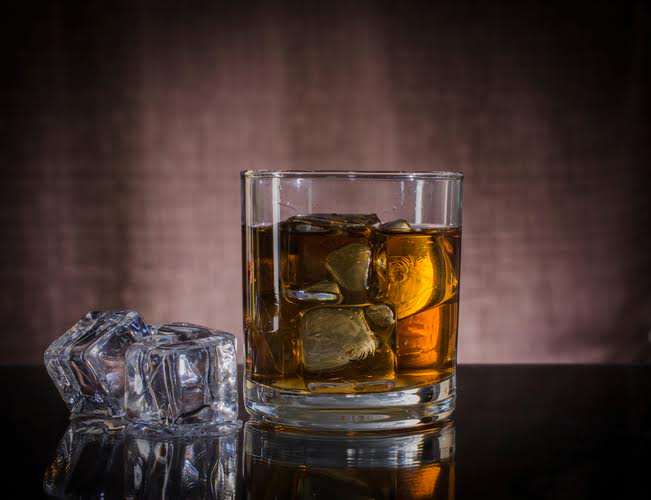But what happens if, after being sober, someone starts drinking again? An alcohol relapse means you go back to drinking regularly after having a period of sobriety without the use of alcohol. The idea is devastating, but it is not uncommon for an alcoholic in recovery to slip up and drink again.
Why my Sober October lasted a year – CNN
Why my Sober October lasted a year.
Posted: Sun, 01 Oct 2023 07:00:00 GMT [source]
Keep reading to learn about steps you can take to stop drinking, take back control of your life, and how to get sober from alcohol to start the path to recovery and long-term sobriety. While it is heartbreaking when those in recovery relapse, it is never https://accountingcoaching.online/patients-of-sober-living-centers-are-often-last-to/ too late to start over and get help. It is essential to acknowledge that when someone with an AUD starts drinking again, it is only prolonging the health issues, unhappiness, and instability that alcoholism causes for the drinkers and their loved ones.
What Happens When an Alcoholic Starts Drinking Again?
Individuals who have significant liver damage often develop severe issues with attention, memory, and problem-solving that qualifies them for a diagnosis of dementia. The issue of whether you can break your AA abstinence vow is more complicated, but it is still up to you, of course, and many do. Oddly, even some people who support and encourage controlled drinking rule it out for successful AA members.

When people drink after a period of abstinence, the body experiences shock. Tolerance to the toxic effects of alcohol on the human system is lowered. After six months of abstinence, the process of fat loss on the liver may be completed, resulting in a healthy liver. Other data suggests that “if you have fatty liver disease, the damage may be reversed if you abstain from alcohol for at least 2 weeks.” This data demonstrates the negative effects alcohol has on the body, deteriorating drinkers’ overall health. Whether it is single use or a boozy bender, there is the risk of alcohol interfering with the body’s normal functioning. The recovering person may talk themselves into drinking again by creating a strategy for achieving moderation.
Your body weight
They can help you get medical attention should you have severe symptoms. “I read other people’s withdrawal symptoms and how they seem to be over in a week, but mine are still hanging on … Just stomach problems and anxiety, mostly.” “I’m feeling so much better about my life and my actions. I love life without alcohol. Every day that passes, I realize the cravings are fewer and farther between. I’m not so tired all the time.” “I’ve had aches in every joint, and even now, the periodic taste of alcohol in my mouth. It’s the taste of detox, I’m guessing. Already, I’m sleeping better, feeling better, though I’m a little spacey, and my skin already looks healthier.”
- Moderation management has been found most successful for those who have a problem with drinking but who do not meet the criteria and have not been diagnosed with moderate or severe alcohol use disorder.
- BAC is the amount of alcohol in your blood compared to the amount of water in your blood.
- Hopefully you came up with some alternative activities so you weren’t tempted by the end of the work week.
- The first step may be to consider self-knowledge, truthfulness, and other building blocks on the road to personal growth.
Although perhaps AA is better suited for those who will achieve stable abstinence compared with those who are capable of achieving moderate drinking, there is also some overlap between these groups. And you are very different, as you know, at 36 from how you were at age 20. When I was drinking, it never occurred to me that I was an introvert. I would have classified myself as someone who loved to be around people and go out with them at night. Thinking back to before I was sober, I usually had to drink to be around people. When I stopped drinking, not only did my recovery dictate that I needed lots of time to myself, lots of self-care, and lots of nights in, I discovered that I was, in fact, someone who relishes in alone time.
Mood Swings, Brain Fog, and Anxiety
Adrienne Santos-Longhurst is a freelance writer and author who has written extensively on all things health and lifestyle for more than a decade. While a BAC of .08 or over can get you into legal trouble, any amount of alcohol can interfere with your ability to drive safely. Certain medical conditions, especially those that affect kidney or liver function, can affect how quickly alcohol is metabolized and how it affects you.

Depending on the type of dependency, PAWS can last from six months to two years after you stop using drugs or alcohol. However, research suggests that while 12-step groups are effective, people often don’t continue their involvement at beneficial levels over the long term. John C. Umhau, MD, MPH, CPE is board-certified in addiction medicine and preventative medicine.
Press ‘Play’ for Advice On Getting Sober
I got sober at the age of 23; an addict and alcoholic I very much was. AA saved my life, and the foundation for my life and for my spirituality rests in the heart and arms of AA. Over a period of 7 years I grew into the person that Alcoholism & Anger Management: Mental Health & Addiction I am today, and continue to grow in spirituality and in mind, and continue to use the tools that AA gave me, taught me, etc. At 30 years old though, I truly believed that I was a different person than I was at 15, 19, 22, and 23.